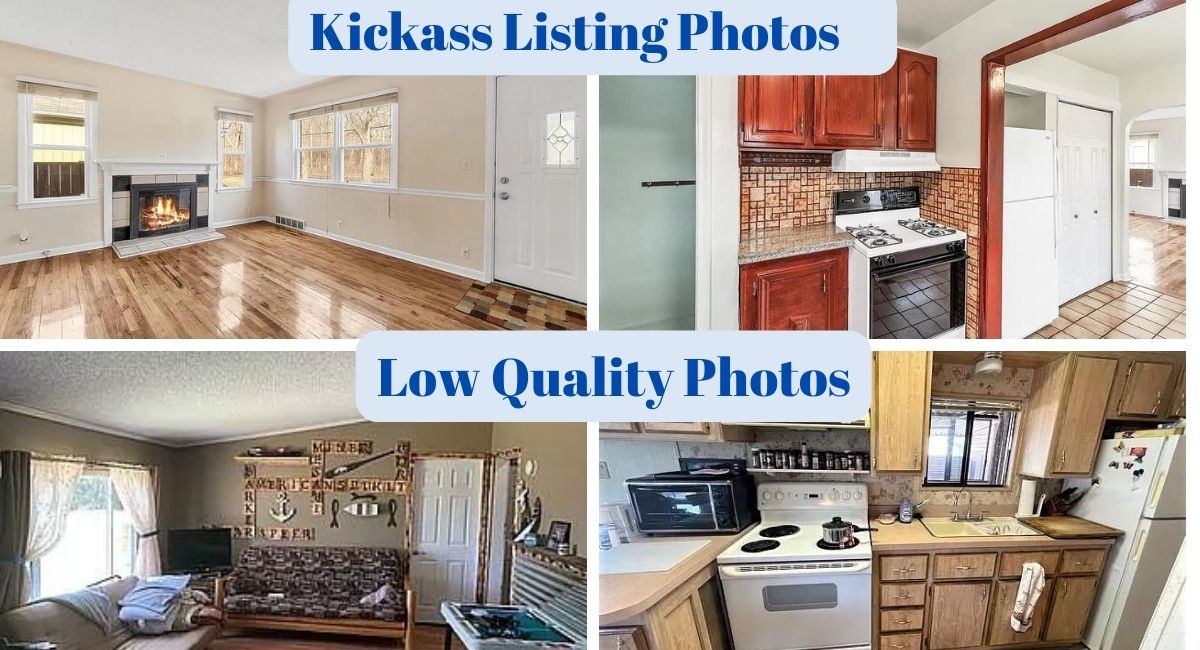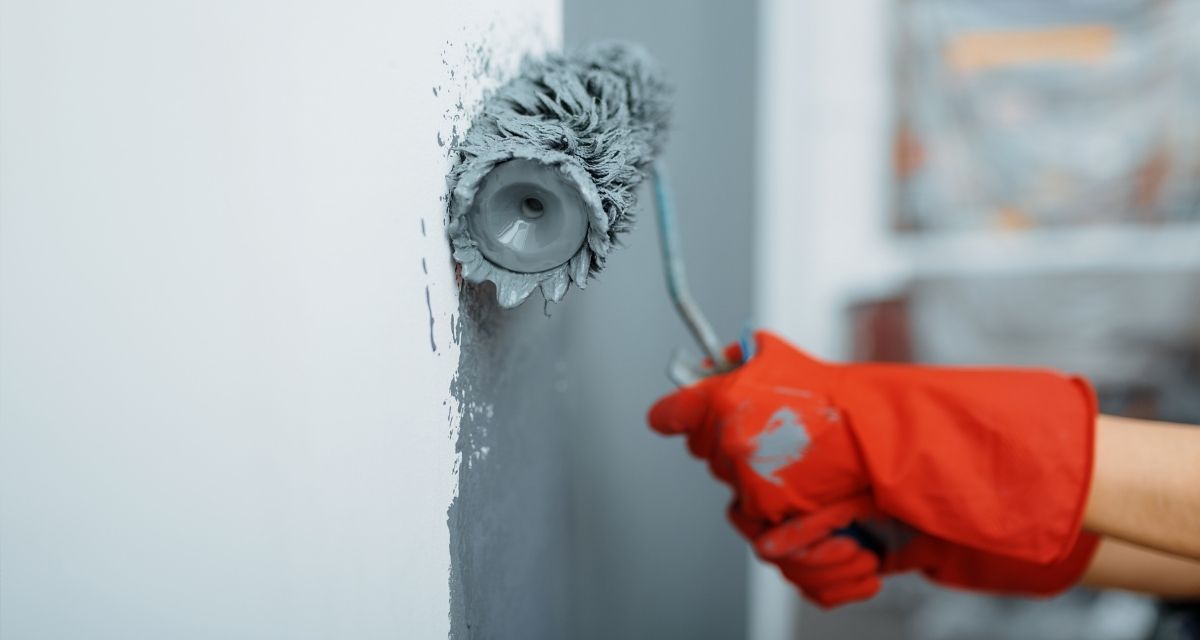Selling your house can be a roller coaster of physical and emotional stress. But it’s no excuse to commit mistakes that’ll come in the way of the sale or put you at a loss. The greatest feeling a seller can derive from a sale is the joy of knowing that his property has been sold at an excellent price.
In this detailed article, you’ll learn about the mistakes you should avoid when selling a house and how to fix them.
Mistake 1: Attaching Emotions To The House
For every homeowner, selling the home where you’ve lived, made unforgettable memories, and probably started a family can be difficult. But it would help if you kept those emotions from getting in the way of a successful sale. It evokes other mistakes discussed much later in this article, like pricing too high or staying back during showings.
How To Deal With This Seller Mistake
Cold as it may sound, one should focus solely on business in a property sale. You can’t let your emotions lead when you’re setting the price of your property or accepting offers. Buyers also want maximum value for their money, or else your house may spin cobwebs while sitting on the market — if you overstretch the property’s worth.
One way to set a competitive price is to request a comparative market analysis from your realtor. The CMA will compare your home to similar houses recently sold in your neighborhood. In exchange for the report, your agent may ask for a contract to sell your house.
Another way to deal with emotions when selling your house is to zero your mind as a businessman and treat potential buyers like the new owners. Alternatively, you can request a free CMA report online if you only need to know the estimate or are selling to a cash buyer. However, the downside to requesting a CMA report online is that the report is usually less accurate than one from an agent with personal judgment.
Mistake 2: Taking Unprofessional Photos
As the popular saying goes, a picture is worth a thousand words. That’s why we strongly believe that the quality of photos you upload in your listing will greatly influence the caliber of buyers who send in offers. Unfortunately, countless listings stay unfairly long on the MLS because of shady photos the seller took with their smartphone or cheap camera.
How To Deal With This Mistake When Selling Your House
Get a professional photographer with experience in the real estate industry to take photos of your property. And getting an excellent photographer is not just for show. Reports show that homes with kickass listing photos sell 32 percent faster than low-quality ones. It’s even more assured if your home is in the $200,000 to $1 million price range. You may earn more than $11,000 from this obvious investment.
Mistake 3: No Insurance
It’s easy to make this mistake, especially if the house is vacant during the sale period. Most homeowners insurance policies will not cover your home if you’re not living in it, which often exposes you. Automatically, countless homeowners stop paying for insurance when they’re close to selling, but this can prove to be a costly mistake.
A freak storm or damage caused by a prospective buyer during a showing or open house could cost you thousands of dollars as opposed to paying a couple of hundred bucks if you had insurance. And though the chances are slim, leaving your property — worth thousands or millions — is unwise to chance.
How To Avoid This Mistake When Selling Your House
Get A Vacant Home Insurance
Your home becomes vacant if you’re away for more than 30 days. If that’s the situation you find yourself in, buy a vacant home insurance package (VHI). A VHI package covers natural disasters, leaky pipes, arson, vandalism, and fire damages.
These damages can be catastrophic if you’re not at home to handle the situation. For example, imagine a small pipe leak completely flooding your house — destroying furniture and appliances.
That’s right. It definitely won’t be a pleasant scene. However, to qualify for a VHI, your home must appear like someone’s living in it. In the end, you may not have a reason to make any of these claims. But prevention is better than repair.
Still Shop Around For Quotes
Start by asking your current insurance provider how they handle this type of coverage. They may offer additional coverage to your existing policy or a separate policy. Then, compare their offer with quotes from 2-3 insurance companies. We advise you to refrain from focusing blindly on monthly costs when comparing. Other factors like coverage limit and premium can also make a huge difference.
Hold Out Till You Close The Deal
Most VHI packages cost more than double the price of regular homeowner’s insurance. So, unless leaving your house vacant before closing is inevitable, consider staying till the deal is done.
Mistake 4: Hiding Damages And Defects
Hiding damages on your home is distasteful and may cost you more than the problem you’re concealing. Plus, it’s a criminal act. If a buyer figures that you covered warped flooring with a rug or painted over water-stained walls, such a person can sue you, even after you’ve closed the sale.
How To Deal With This Home Selling Mistake
Disclose All Material Defects
Make a list of all the defects you’re aware of in the house, including minor and major issues. Anything from sliding doors with faulty rollers, ant infestation, and even a leaky roof. Though it might turn some away, most buyers will appreciate your honesty as it will help them decide early enough if they are ready to live with these issues. In addition, it would save both your time if they were discovered during the buyer’s inspection instead.
Again, never mask the defects. Sooner or later, the buyer will discover the cover-up, and you’ll pay for repairs, damages, and a lawyer’s services.
Sell Your House To House Buying Companies
Cash for houses companies like Cash for Michigan Houses will buy your house regardless of its defects. You’ll fill out a form to supply information about your home, and they’ll reach out to you within a day. Some companies send a representative to assess your house’s condition if all goes well. Then, finally, they close the sale within a week, and you’re paid in cash.
Mistake 5: Not Staging The House
It’s funny how many sellers fail to stage their house despite all the numbers in its favor. Only 28 percent of agents stage a seller’s home. Meanwhile, the NAR shows that homeowners can gain a 5-15% return on investment (ROI) when they hire professional home stagers.
Staging is a professional preparation of your house to attract the highest number of potential buyers. Real estate experts and agents agree it helps sell faster and for a higher price. The company stages the house with furniture to help buyers picture themselves living in it, even if it’s a vacant house.
It would be best if you employed every upselling tactic when selling a property as valuable as your house.
How To Deal With This Home-Selling Mistake
Hire A Staging Company
You can find staging companies online or through referrals from your agent or a loved one. Prices vary by region and property size, but staging service costs $400 on average.
Mistake 6: Setting A Price From Fantasy Land
A major issue with emotional sellers is setting a price too high. And it makes your house sit for too long on the market.
How To Deal With This Home-Selling Mistake
Get A Comparative Market Analysis
Get a comparative analysis from your real estate agent. The report will compare prices of similar houses that have sold recently in your area to give your fair market value. With these statistics, you can set a competitive price for your home.
Start A Bidding War
Sometimes, setting an asking price below the FMV could start a bidding war. But, eventually, buyers will make offers above the asking price and closer to your intended price — without haggling.
Mistake 7: Selling At The Wrong Time
Believe it or not, there are right and wrong times to sell your house. And if you choose to sell at any time, your property may stay on the MLS for many months or only attract lowball offers. In theory, this will be putting up your house for sale during winter.
How To Deal With This Seller Mistake
Don’t Sell During Winter Months
A real estate broker at Coldwell Banker says December and August see the fewest sales. So you might want to steer clear of those months. Sure, markets vary from time to time and place to place. But it’s been proven that the above-stated periods yield less positive results.
Fall is also a bad season as results have shown a decline in average premium by up to 50% starting from September. One reason is that families with kids would’ve found a home to accommodate their school-aged kids.
If you’re not worried about closing the deal, you can list the house anytime that suits you. But remember, you have to act like a salesman, not an emotion-ridden homeowner.
Pick Housing Landmark Dates
Zillow did some research and came up with some of the best times of the year to sell a house. March is considered the best month to list for a quick sale, and September (specifically after Labor Day) is the worst month. But if you’re all about maximizing profit, wait till July.
They also found Thursday is the best day of the week to sell a house, with a reported 1.5% rate to market faster and over the asking price. However, homes listed on the weekend are likelier to sell below the asking price.
Finally, spring is the best season for home sales. Armed with tax refunds, ice-free roads, and kid’s about to go on summer break, buyers hit the markets in numbers and with high hopes.
Check The Best Time To Sell In Your Locale
You might be right if you think the property sales landmark listed above gives you the zodiac sign vibe. Unfortunately, while these trends are factual, they’re mostly national data, not local.
Location, as you know it, is the pillar that holds the real estate market. And fortunately, you can assess your local market trends with Zillow’s Owner Dashboard. It’s an artificial intelligence tool that suggests the best month to sell in your area using sales trends of houses sold in your area on Zillow’s database.
All you have to do is input your residential address and compare the results. It’ll show you what your house can sell for now and at a later date (day, week, or month) for a quick sale or above-list price.
Mistake 8: Staying During Showings
Nobody wants an overlord homeowner following them around during an open house. In fact, it makes the buyer think you don’t trust your agent, and in turn, the agent might be unable to unleash his salesman skill set.
Essentially, they’ll be unable to speak freely or engage in small talk, which might be all the effort needed to make a sale. Plus, you could make an innocent suggestion that’ll be a deal-breaker to a buyer. Unsurprisingly, 90% of a buyer’s decision is based on emotions.
Again, throw out emotions and forget you’re a homeowner. So, when an agent sets visiting dates, you should be anywhere but in your house. Being around during tours might inconvenience potential buyers.
How To Deal With This When Selling Your House
Schedule open houses at specific hours and days of the week when you know you have engagements elsewhere. It could be a nice time to hang out with friends and family or write that business idea you’ve been pushing off at a coffee shop.
Create Virtual Tours
The pandemic shifted buyer behavior drastically, and 90% of home buyers now look online for their dream home. If you’re in a seller’s market, your real estate agent can create a virtual tour to stop people trooping into your house.
Are you tech-savvy? Then you can save a couple of hundred bucks by creating an online tour yourself. Watch this comprehensive tutorial below to learn how it’s done:
Set Visitation Limits
Don’t get me wrong; you don’t have to bend over backward to please buyers. Ask the realtor to limit the visiting days if you’re uncomfortable with an influx of people in your house. You can also restrict appointments to only clients with a pre-approval letter or proof of fund.
Inform Your Agent Ahead Of Time
Sometimes leaving the house isn’t an option for work from home or disabled owners. And that’s fine. Just let your agent know you’ll be staying, so they can inform the buyer’s agent ahead of time.
Staying during the showing isn’t exactly going to piss off every buyer, as long you stay out of their way. Let them feel like the new owners.
Mistake 9: Poor Curb Appeal
Like dates, first impressions matter when you’re selling your house. The only difference is that your appealing front yard will win you a profitable deal, not a date.
Studies show that a home with likable curb appeal will sell for 7% more than a similar house with poor curb appeal. So, if you’re thinking of listing your house without sprucing up your yard first, you should have a rethink. For instance, on a home worth $400,000, you could be leaving as much as $28,000 on the table.
How To Deal With This When Selling Your House
Do It Yourself
Unless your front yard looks like something out of a horror movie, you can beautify it yourself. Here are some small projects you can do to improve your curb appeal:
- Add flower pots.
- Mow overgrown lawn.
- Fix broken pavements.
- Install outdoor lights.
- Clear up dead leaves and pick up garbage.
- Clean the gutters.
Hire Professional Handyman Service
Some repairs and maintenance tasks are best left to the professionals. Things like changing your front door or replacing rotten deck boards are worth hiring professionals for.
Another way to improve curb appeal is by pressure washing the exterior of your building. It’s an affordable way to achieve a clean appearance instead of painting.
Mistake 10: Not Paying Attention To Painting
Many sellers shrug off painting because it is often a costly investment. However, unless you’re selling for cash, you’ll leave a lot of money on the table if you sell your property with age-long paint on the walls or paint peeling off at every corner of the house. With the right color, a paint job can increase your property’s value by 500%.
How To Handle This When Selling Your House
Choose a paint color with a neutral tone such as white, beige, brown, grey, or taupe. Since it’s difficult to predict a buyer’s favorite color, we advise you to use neutral colors. They work best in these circumstances.
Even repainting doors could give you a juicy return on your investments. In a Zillow study, researchers found that dark-colored doors can add over $2,000 to your selling price and costs only between $100 to $400 to repaint. On the other hand, a charcoal or jet black front door can increase a home’s price by $6,271.
Mistake 11: Neglecting Energy Efficiency
One way to increase the value of a property that most sellers ignore is improving their home’s energy efficiency. You could miss out on an extra $15,000 on your asking price with such a mistake.
How To Fix This Seller Mistake When Selling Your House
Sell Your Energy Saving Features To Buyers
If you’ve enjoyed conservative energy on your property, let them know about it in your listing. If buyers realize that they’ll spend less on utilities over time, in the long run, they’ll be happy to pay more upfront. But remember, you have to show and not just tell. For example, you could show them heating and water bills if it’s below the average for houses of a similar size.
Improve Your EPC Rating
The easiest upgrade you can make to your EPC rating is to install energy light bulbs. You can also change to an energy-efficient boiler or install insulated walls. Plus, you could add lagging jackets to your water pipes to keep them warm. All of these would reduce your heating bills considerably.
Mistake 12: Not Inspecting The House Before Listing
Many buyers try to con homeowners into reducing their selling price by asking for shitty repairs at closing — after the buyer’s home inspection. That’s why it’s important to discover and disclose any issues and cut this act outright. It will give you a chance to command your asking price confidently.
How To Solve This Error When Selling Your House
Hire A Contractor
The go-to way is to hire a home inspector capable of covering the whole house. A pro will help you identify plumbing, heating, wiring, roofing, drainage, or structural damage if there’s any. You can ask friends who’ve sold their house in the past to refer someone to you.
Minor Problems Aren’t Necessarily Deal Breakers
Most sellers fear they’ll discover many issues before listing and fail to sell at a fair price. But that’s not entirely true.
Many buyers will appreciate the honesty and make an offer after their inspection discovers minor issues. But, more importantly, you would’ve priced your home with the repairs in consideration. That way, a buyer can’t shave thousands of dollars off your asking price unexpectedly.
For instance, if the house has some damaged sidings, you can deduct $5,000 from the FMV price to fix this issue. And maybe even recommend a good contractor who’ll fix it. Whether they use your contractor or accept the offer isn’t your business.
Mistake 13: Not Verifying Proof Of Funds
The last thing you want is to lose your home to scammers or waste time dealing with sellers that can’t afford the house. That’s why verifying your buyer’s ability to pay early on with Proof of Funds (POF) is important to prevent any unexpected turn of events.
How To Handle This When Selling Your House
Ask Before Or After They Send An Offer
Demand a POF if you’re dealing with an all-cash buyer or a pre-approval letter from a financed buyer. It should include the date, name of the account holder, and account balance. Also, ensure the document has an official letterhead and, like all other documents they submit, be physical.
Use A Solicitor
A real estate attorney will save you the trouble of verifying the buyer and closing the sale yourself. The attorney ensures a hitch-free transfer of property to the new owners.
Mistake 14: Being Rigid With Negotiations
If your property is the likely target for a move-up buyer, give the buyer time to sell their own home. Higher-priced properties have a smaller pool of potential buyers and thus stay on the market longer. So unless you are open to negotiations or willing to make a price drop, your property might remain on the market for 45 to 60 days, or even more, depending on the market.
How To Deal With This Mistake When Selling Your House
Employ Proven Negotiation Tactics
Homeowners get the most on house sales using common but effective negotiation tactics. A few of them include:
- Sending a slightly lower counter offer.
- Agreeing to pay closing costs but increasing the asking price.
- Counter with an offer that is somewhat below the listing price.
- Reject out rightly and ask them to make a new offer.
- Put a timer on your counteroffer.
- Lower the asking price to start a bidding war.
Selling A House In Need Of Many Repairs?
Get an offer for your house (no matter the condition) in 24 hours when you fill out this form. The Cash for Michigan Houses team will assess the value of your home and send an offer in as fast as 10 minutes.
Once you accept the offer, the deal closes in a few days, and you’ll have cash in your hands to move, travel the world, stay afloat, or pay down on your next home.
Also, you get 100% on our offer. No fees. No commissions. No closing costs.













